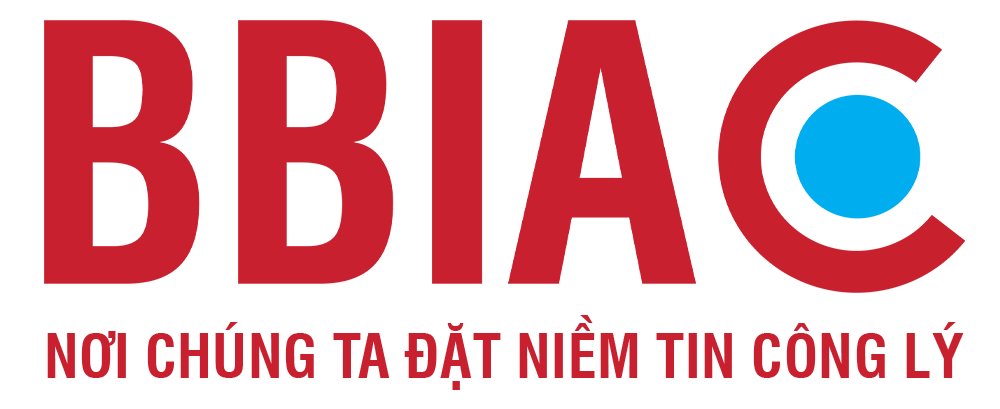Commercial Arbitration Law in Vietnam: Things to know

1. Overview of commercial arbitration law
Vietnam’s Commercial Arbitration Law is part of the legal system to regulate and support the resolution of commercial disputes by arbitration. Below are some basic points about Vietnam Commercial Arbitration Law:
1.1. Scope of application
This law applies to commercial disputes in which the parties agree to use arbitration to resolve. This scope is wide and includes most types of commercial contracts, purchase and sale of goods, services, investments, construction, etc.
1.2. Basic rules
Pursuant to Article 4 of the 2010 Commercial Arbitration Law, the principles for resolving disputes by Arbitration are prescribed as follows:
– The arbitrator must respect the parties’ agreement if that agreement does not violate prohibitions or is contrary to social ethics.
– Arbitrators must be independent, objective, impartial and comply with the provisions of law.
– The disputing parties are equal in rights and obligations. The arbitration council is responsible for creating conditions for them to exercise their rights and obligations.
– Dispute resolution by Arbitration is conducted privately, unless the parties agree otherwise.
– The arbitration award is final.
1.3. Arbitration process
The arbitration process under the Vietnam Commercial Arbitration Law is carried out in 5 steps:
Step 1: File a lawsuit and defend yourself
The Plaintiff sent the Complaint to the Center.
The Center sends the Petition and related documents to the Defendant.
The defendant sends the Self-Defense Statement and Counterclaim (if any) to the Center.
Step 2: Establish an Arbitration Council
The Arbitration Council consists of three Arbitrators
The plaintiff and defendant each choose 1 Arbitrator or request the Center President to appoint 1 Arbitrator.
The two arbitrators chosen by the parties elect another arbitrator to be the Chairman of the Arbitration Council; In case the two arbitrators cannot elect the Chairman of the Arbitration Council within the prescribed time limit, the President of the Center shall appoint another arbitrator to be the Chairman of the Arbitration Council.
The Arbitration Council consists of a sole Arbitrator
The plaintiff and defendant agree to choose a sole arbitrator or request the Center President to appoint a sole arbitrator or the Center President to appoint a sole arbitrator in case the parties cannot agree on an arbitrator. single member within the specified period.
Step 3: The Arbitration Council studies the dossier and performs a number of tasks according to its authority
The Arbitrators study the file.
The arbitration council carries out a number of tasks within its authority such as verifying the incident, collecting evidence, summoning witnesses, and applying temporary emergency measures.
Step 4: Conduct a dispute resolution meeting
The arbitration council conducts a dispute resolution session.
At the request of the parties, the Arbitration Council conducts mediation. In case of successful conciliation, the Arbitration Council prepares a Minute of successful conciliation and issues a Decision recognizing successful conciliation.
Step 5: Issue an arbitration award
In case of no conciliation or successful conciliation, the Arbitration Council shall issue an Arbitration Award within 30 days from the end of the last dispute resolution meeting.
The Arbitration Council sends the Arbitration Award to the Center immediately after the date of issuance. The Center immediately sends to the parties the original or certified copy of the Arbitration Award.
1.4. Effect and implementation of decisions
Commercial arbitration awards are final and take effect immediately at the time of issuance. The results of resolving commercial disputes by arbitration will be carried out voluntarily by the disputing parties or enforced by competent state agencies according to the order and procedures prescribed by law.
1.5. National characteristics
Vietnam’s commercial arbitration law reflects the characteristics of Vietnamese law and also accepts international principles and standards but is adjusted to suit Vietnam’s context and economy.
2. Main provisions in the law
Vietnam’s Commercial Arbitration Law (Law No. 54/2010/QH12) includes many important regulations to regulate arbitration activities in the commercial field. These laws, along with other provisions in the Vietnam Commercial Arbitration Law, create a comprehensive and clear legal framework, helping to ensure fairness and efficiency in the process of resolving commercial disputes by arbitration. arbitration method. Main provisions in the law such as scope of regulation, settlement principles, and settlement conditions.
In addition, the Vietnam Commercial Arbitration Law also sets aside a chapter to regulate arbitration agreements, regulations on rights and obligations of arbitrators, arbitration process, and detailed regulations on arbitration centers. arbitration in chapter IV and temporary emergency measures to apply in case of necessity during arbitration proceedings.
3. Rights and obligations of related parties
In arbitration proceedings, in order for the participating parties to clearly understand their rights and obligations so that the resolution process can take place effectively, the Vietnam Commercial Arbitration Law has stipulated the rights and obligations of the participating parties. family.
The parties’ right to self-agree and self-determine throughout and governs the entire process of resolving disputes by arbitration. Accordingly, the parties have the right to agree on the establishment of an arbitration agreement before or after When a dispute occurs, selection of arbitrator, change of arbitrator, composition of the arbitration council, form of arbitration (statute or case), language, location, applicable law in case of dispute There are foreign elements, dispute resolution meetings, procedural components of dispute resolution meetings… Clause 1, Article 4 of the LTTTM clearly stipulates: “The arbitrator must respect the parties’ agreement if that agreement does not violate prohibitions and is contrary to social ethics.” Article 6 of the LTTTM stipulates: “In cases where the disputing parties have an arbitration agreement and one party initiates a lawsuit at Court, the Court must refuse to accept the case, except in cases where the arbitration agreement is invalid or the arbitration agreement is invalid. cannot be done”.
In addition, the plaintiff also has the right to withdraw the lawsuit petition. The plaintiff also has the right to amend and supplement the lawsuit petition. The defendant, in addition to the right to self-defense and counter-suit, also has the right to amend and supplement the counter-claim and self-defense statement. guard. However, the Arbitration Council has the right not to accept these amendments and supplements if it finds that they can be abused to cause difficulties, delay the issuance of an arbitral award or exceed the scope of the agreement. Arbitration applies to disputes (clause 2, article 37 of the LTTTM). The right to self-determination is still carried out even when the Council (of the Court of competent jurisdiction) considers the application to cancel the arbitration award during the time of considering the application. At the request of a party, it can temporarily suspend the application. Consider and resolve the application within no more than 60 days to create conditions for the Arbitration Council to overcome shortcomings in the arbitration proceedings in the opinion of the Arbitration Council in order to eliminate grounds for annulment of the arbitration award.
In addition to the regulations on the rights of the parties, providing evidence is both a right and an obligation of the participating parties. Vietnam’s commercial arbitration law stipulates that the plaintiff and defendant have the right and obligation to provide evidence to the arbitration panel to prove their claims and facts related to the content of the dispute. keep.
4. How to resolve disputes using Bigboss International Commercial Arbitration Center
To resolve disputes by commercial arbitration at BBIAC. Customers can write in the contract one of the following two contents:
4.1. Model Arbitration Clause
“Any dispute arising out of or related to this contract shall be resolved by arbitration at the BIGBOSS International Commercial Arbitration Center (BBIAC) in accordance with its Arbitration Rules.”
In addition, the parties may add:
(a) the number of arbitrators is [one or three].
(b) the place of arbitration is [city and/or country].
(c) the law applicable to the contract is [ ].*
(d) the arbitration language is [ ].** Note: *
Only applicable to disputes with foreign elements **
Only applies to disputes with foreign elements or disputes in which at least one party is a foreign-invested enterprise.
4.2. The Model Arbitration Clause applies to summary proceedings
“Any dispute arising out of or in connection with this contract shall be resolved by arbitration at the BIGBOSS International Commercial Arbitration Center (BBIAC) in accordance with its Rules of Arbitration. The parties agree that the arbitration proceedings will be conducted in accordance with the Summary Procedures set out in Article 37 of the BBIAC Arbitration Rules.”
In addition, the parties may add:
(a) the place of arbitration is [city and/or country].
(b) the law applicable to the contract is [ ].*
(c) the arbitration language is [ ]. **
Note:
* Only applies to disputes with foreign elements
** Only applies to disputes with foreign elements or disputes in which at least one party is a foreign-invested enterprise.
